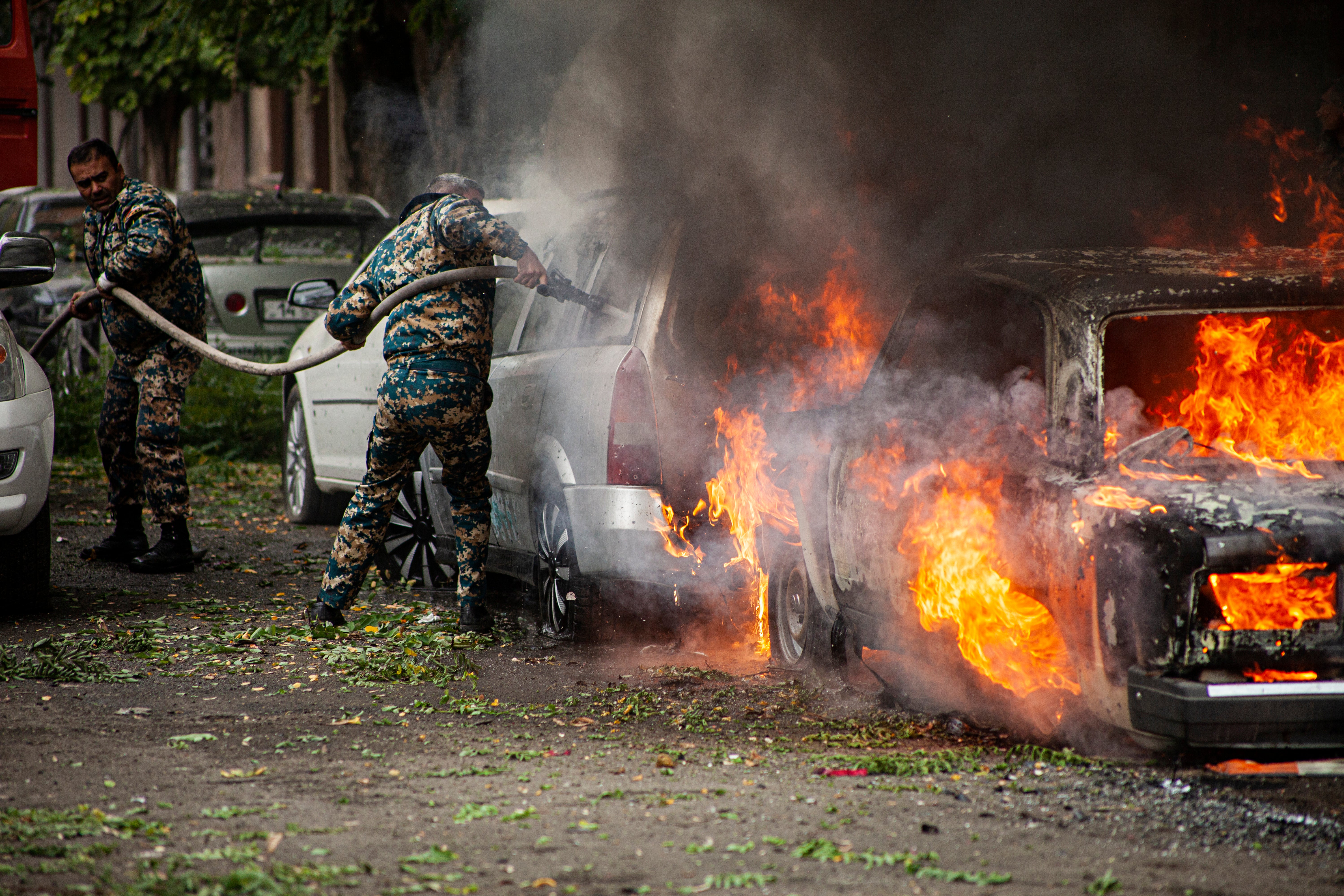Armenia and Azerbaijan conflict: EU calls for calm amid renewed hostilities
The fighting between Armenian and Azerbaijani forces over the separatist region of Nagorno-Karabakh continued on Wednesday morning, with Armenian officials saying the territory’s capital came under attack again and the European Union calling for cessation of hostilities

Your support helps us to tell the story
From reproductive rights to climate change to Big Tech, The Independent is on the ground when the story is developing. Whether it's investigating the financials of Elon Musk's pro-Trump PAC or producing our latest documentary, 'The A Word', which shines a light on the American women fighting for reproductive rights, we know how important it is to parse out the facts from the messaging.
At such a critical moment in US history, we need reporters on the ground. Your donation allows us to keep sending journalists to speak to both sides of the story.
The Independent is trusted by Americans across the entire political spectrum. And unlike many other quality news outlets, we choose not to lock Americans out of our reporting and analysis with paywalls. We believe quality journalism should be available to everyone, paid for by those who can afford it.
Your support makes all the difference.The fighting between Armenian and Azerbaijani forces over the separatist region of Nagorno-Karabakh continued Wednesday morning, with Armenian officials saying the territory s capital came under attack again and the European Union calling for cessation of hostilities.
Clashes between Azerbaijani and Armenian forces in the region since Sept. 27 has killed hundreds in the worst escalation of hostilities since 1994 when a truce ended a war that raged for several years. Nagorno-Karabakh lies inside Azerbaijan but has been under the control of ethnic Armenian forces backed by Armenia for more than a quarter-century.
Armenian Defense Ministry spokesman Artsrun Ovannisian said Wednesday that Stepanakert, the capital of Nagorno-Karabkh, was being targeted once again by Azerbaijan along with other settlements. Nagorno-Karabakh officials said that non-military facilities in Stepanakert have been hit with missiles and drones.
Russian state RIA Novosti news agency reported Wednesday that some of the overnight shelling has hit people's houses, causing significant damage.
Stepanakert has been under intense attacks in recent days. Local residents have been gathering in shelters to escape the violence.
Azerbaijan has rejected claims of targeting civilian infrastructure in Stepanakert. Hikmet Hajiyev, aide to Azerbaijani President Ilham Aliyev, said in an interview earlier this week that Azerbaijani forces only targeted military objects in and around Stepanakert, acknowledging, however, that “some collateral damage” was possible.
The fighting in the region — involving heavy artillery, warplanes and drones — has continued despite numerous international calls for a cease-fire. Both sides have accused each other of expanding the hostilities beyond Nagorno-Karabakh and of targeting civilians.
The EU expressed concern Wednesday about the flare-up of violence.
“We have seen extremely worrying reports of attacks on populated areas which is taking a deadly toll on civilians. We strongly urge the sides to fully observe their international obligations to protect civilian populations,” EU foreign policy chief Josep Borrell told members of the European Parliament.
Borrell told the lawmakers that the Organization for Security and Cooperation in Europe has no observers on the ground and so the EU can't rely on much of the information being spread about the way the conflict is developing.
“What we observe is an increasing amount of disinformation which is aimed at mobilizing domestic audiences in both countries and could be used to pull regional actors into the conflict,” he said. “Media reports need therefore to be examined with great precaution.”
Borrell said that he had discussed the conflict with the foreign ministers of both countries, and with those of Russia and Turkey, the main regional players closest to the conflict. Turkey has publicly backed Azerbaijan in the conflict and said it was ready to provide military assistance, should Azerbaijan request it.
Russia is Armenia’s main ally and sponsor and has a military base there. It also co-chairs the Minsk Group under the auspices of the Organization for Security and Cooperation in Europe, set up to mediate the conflict. Moscow has repeatedly called for a cease-fire and peace talks.
“It is important that regional actors refrain from any activity or rhetoric that could inflame things even further,” Borrell said.
___
Associated Press writers Daria Litvinova in Moscow, and Lorne Cook in Brussels, contributed to this report.

